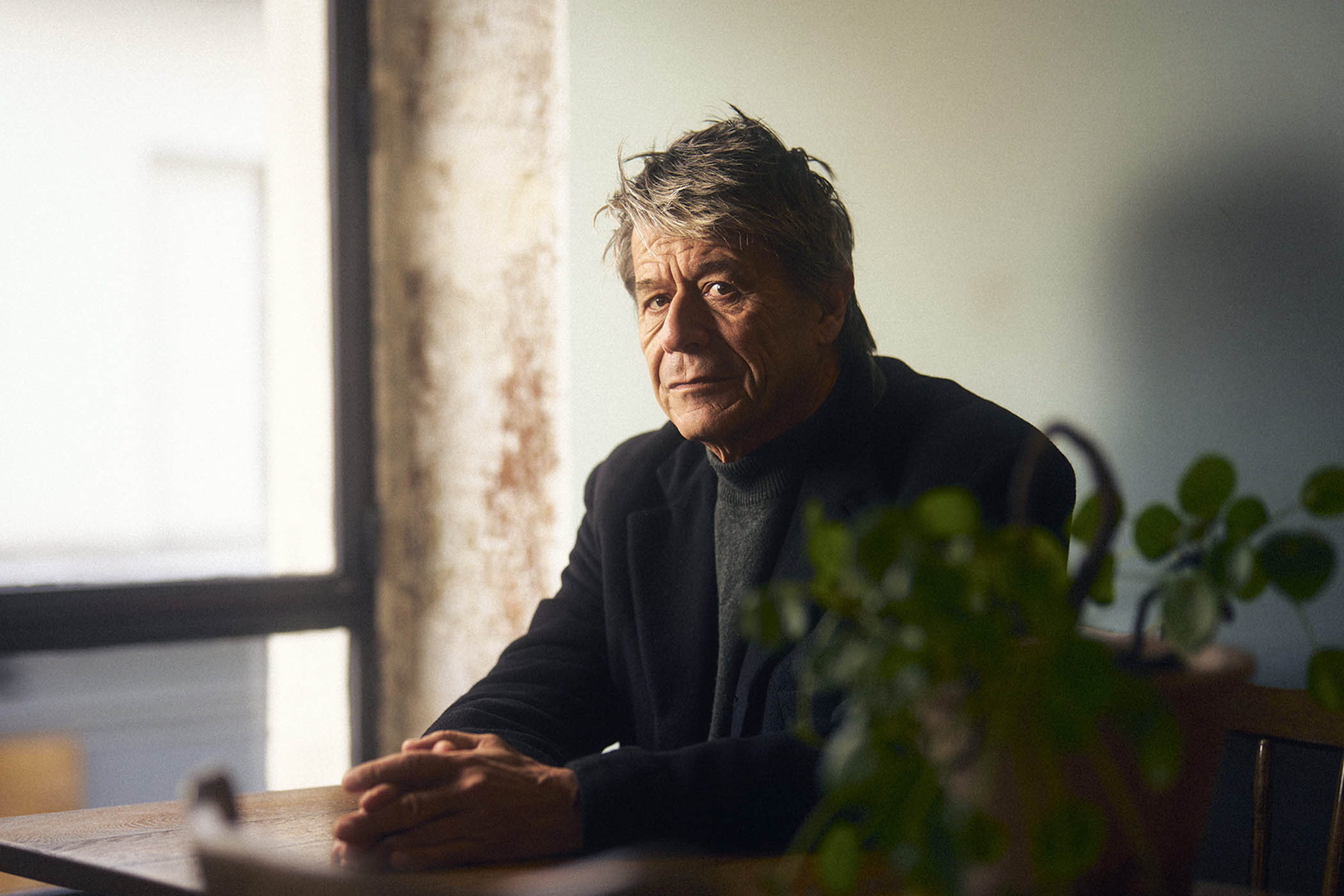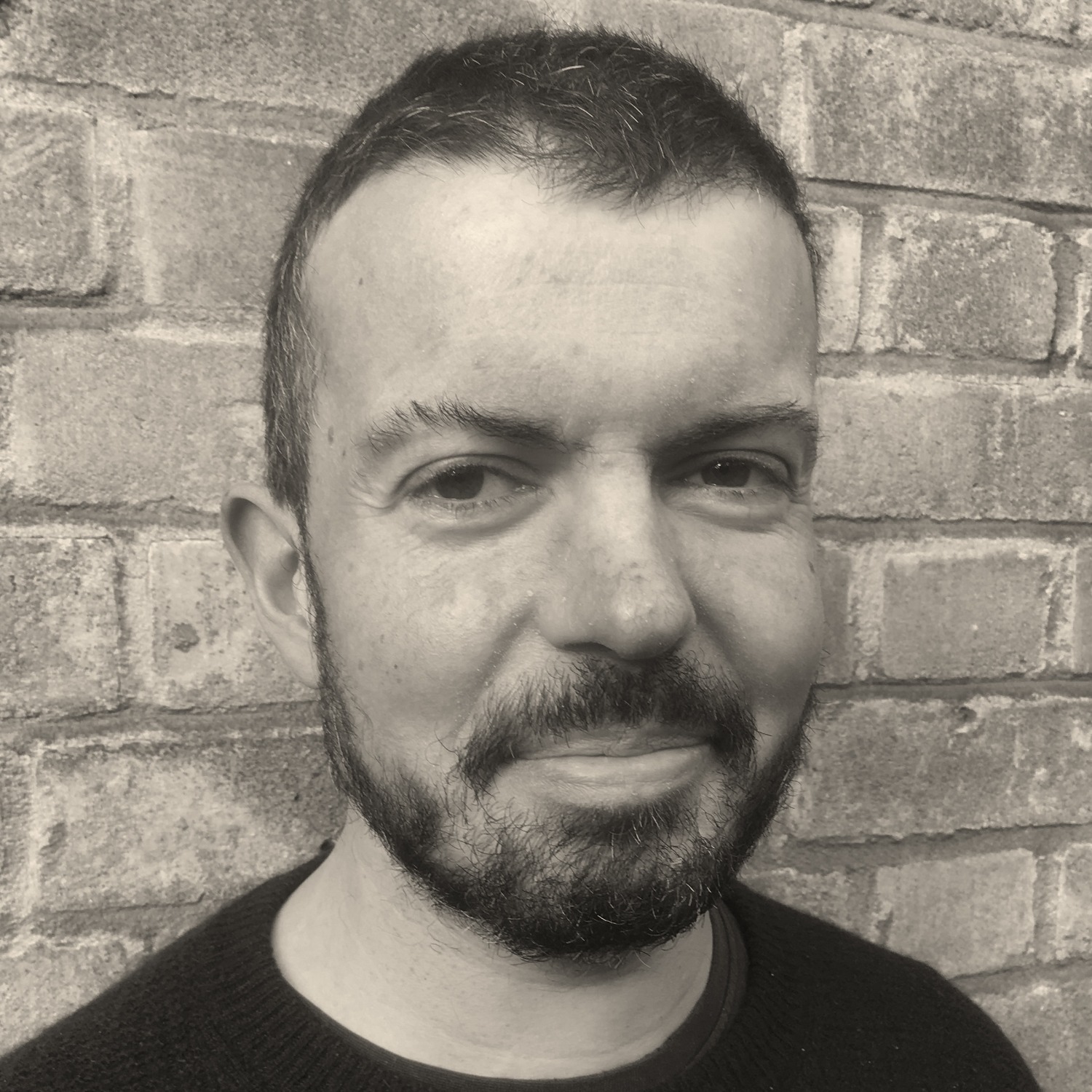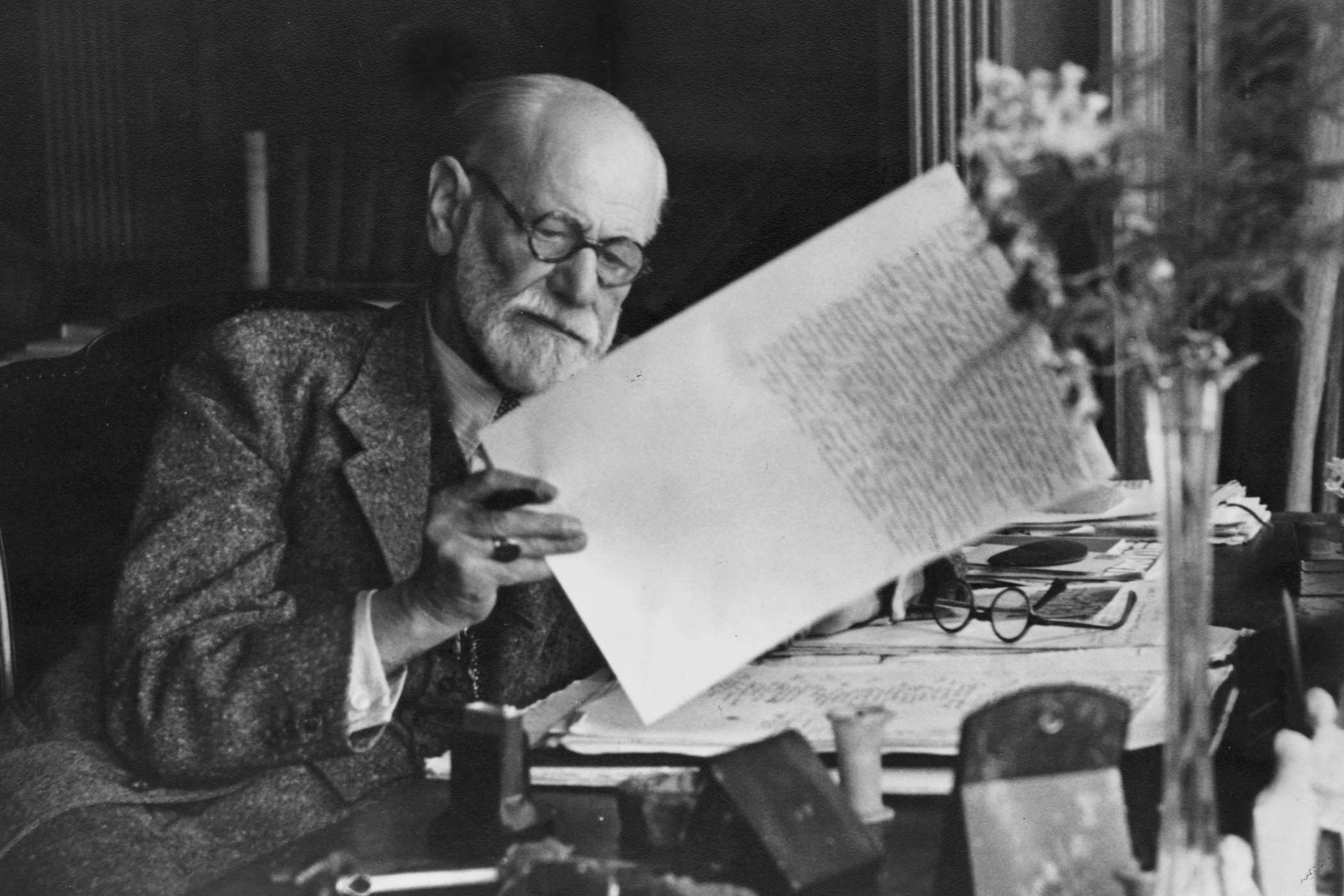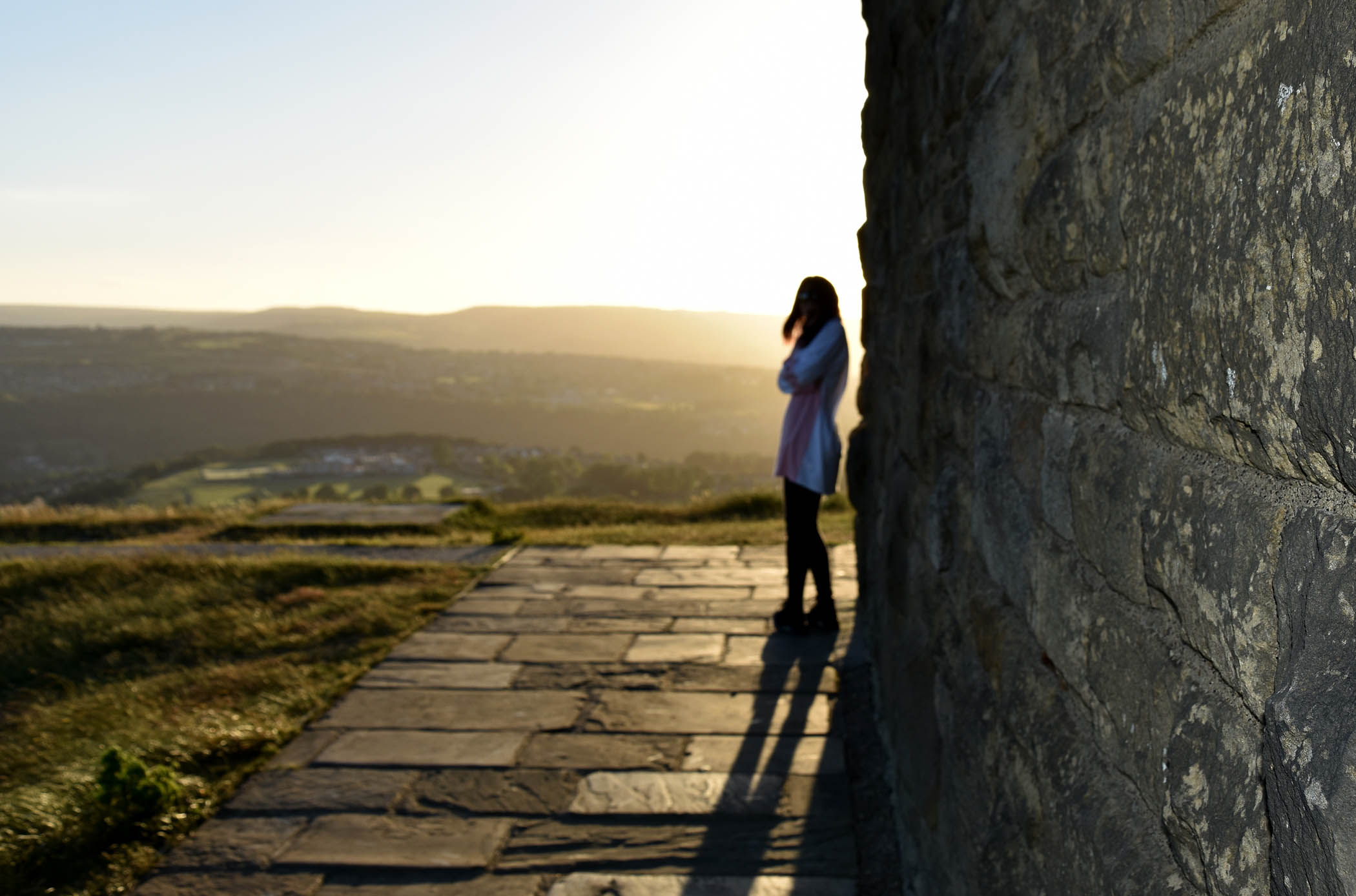Portrait by Manuel Braun
Emmanuel Carrère, 67, lives in Paris and writes novels, nonfiction, journalism and screenplays. He is the author of 17 books including The Adversary (2000), about the murderer Jean-Claude Romand; The Kingdom (2014), a novel centred on early Christianity; and Yoga (2023), an account of his own bipolar disorder. His most recent book, V13: Chronicle of a Trial, collects the weekly reports he wrote for the French magazine L’Obs while following the trial of 20 men accused of abetting the 2015 Paris attacks, in which 130 people were murdered, most of them at a rock concert at the Bataclan theatre.
Was this your hardest book to write?
In a way, it was easier than Yoga. The trial was long, from September 2021 to June 2022, and I attended nearly every day. I had my material, and a precise number of words to write every week – that’s easier than when you’re writing something hazy that depends only on you. That sense of obligation and formal constraint was also a protection when it became extremely emotionally demanding. You cry, you can’t sleep. I did talk to my wife, to my friends, but less and less: the experience was difficult to share with people who weren’t a part of it. As a human being it was terrible, but as a writer it was thrilling.
You previously wrote about a trial in The Adversary.
That book was partly a self-interrogation, to ask why I was fascinated by Jean-Claude Romand. In general, people who write about true crime are interested in the criminals: you’re sad for the victims, but the criminals, that’s the real thing. The Adversary was exactly like this; V13 was the opposite. I did try to be interested in the defendants, but I think most of them were stupid. On the other hand, the more I heard the victims, the more I thought they were really interesting.
Does court reporting hold a particular allure for you?
Writing about a trial, there’s no possibility of invention. It’s not like investigative journalism, where one reporter gets something others don’t; in court, everybody’s on the same bench, witnessing the same things. What makes the difference [between writers] is the sensibility, the observation. You know you have to show your talent.
On the night of the Paris attacks, did you sense that you might end up writing about them?
Certainly not. Like everybody, I was stunned, horrified. My curiosity [as a writer] only began when the trial was announced. The French state wanted to answer barbarism by showing what justice can be in a democracy, which sounded a bit virtuous, and I was suspicious. In fact, it worked very well, which was impressive. My interest was never in jihadism; it was in this gigantic spectacle of justice.
How do you reflect on the attacks, 10 years on?
Right now – I am cautious about saying this – we have the feeling that the great wave of jihadist terrorism in France occurred in 2015 and that this threat is no longer present, but I’m afraid such a wave can happen again. There’s also something new: future massacres can be perpetrated by white supremacists, not only Muslim jihadists.
What draws you to write autobiographically?
Sometimes, people tell me my presence in my books is intrusive or narcissistic. I don’t think this reproach is possible for a reader of V13. I am present in it because I prefer to tell stories in the first person, but the book isn’t about me, out of decency. Most of my books aren’t about me; I’m just the guy who tells the story. This may sound pompous, but I try to write about common human experience as a protagonist or a witness – and human experience is extremely diverse. Sometimes I’m researching early Christianity; sometimes I’m watching pornography. I like to put different parts of experience – things not normally put together – in the same space.
As a journalist, do you think that makes your interviewees wary?
When the Guardian asked me to profile Emmanuel Macron [in 2017], I actually had a lot of freedom. His office asked me to submit the quotes I wanted to use [prior to publication], but the second time, at the G7 [in 2025], they didn’t ask even for that. Going to the G7 was my idea – I wanted to see what an international summit looks like. I went to the Élysée press office and they said: “Be our guest.” My idea was not to destroy Macron. We [in France] are not ashamed of him internationally – he made an incredible mess in his country, which happens to be ours – but he’s not our worst politician. I think it was OK to joke about him and observe things; I didn’t feel like a double agent taking advantage.
Reporting from the G7, you saw Keir Starmer laughing at one of Donald Trump’s remarks “a little obsequiously, relieved like someone who’s been struck by lightning once and is unlikely to be struck again”.
I can’t remember if I wrote this line in my notebook at the time or [if it came later], but when you find a good one, you’re happy! In an article of this kind, you want a little of la comédie humaine. I’m not a political analyst. I write journalism as if I’m writing fiction; for me, there’s no difference [in style]. I try to watch and listen and be aware of the complexity of a situation and relate it as honestly as I can.
Which writers did you enjoy as a child?
HP Lovecraft. I read him when I was about 12 and it was terrifying. Fear was the thing that impressed me most in a book at that age.
What are you reading at the moment?
Ian McEwan’s What We Can Know. I’ve read almost all his books and I really admired Lessons. I agreed to write a foreword for a reissue of Ryszard Kapuściński’s Imperium, about the fall of the Soviet Union, so I reread all his books. It’s a great lesson for the kind of writing I do. I don’t know the exact extent of his invention – I read the biography [by Artur Domosławski, who questioned Kapuściński’s veracity] – but it doesn’t change my respect for his work.
Tell me something you need in order to write.
A subject. There are writers who can write about nothing – and I say that admiringly – but I need a subject.
V13: Chronicle of a Trial, by Emmanuel Carrère and translated by John Lambert, is published in paperback by Vintage (£10.99). Order a copy from The Observer Shop for £9.89. Delivery charges may apply
Newsletters
Choose the newsletters you want to receive
View more
For information about how The Observer protects your data, read our Privacy Policy



